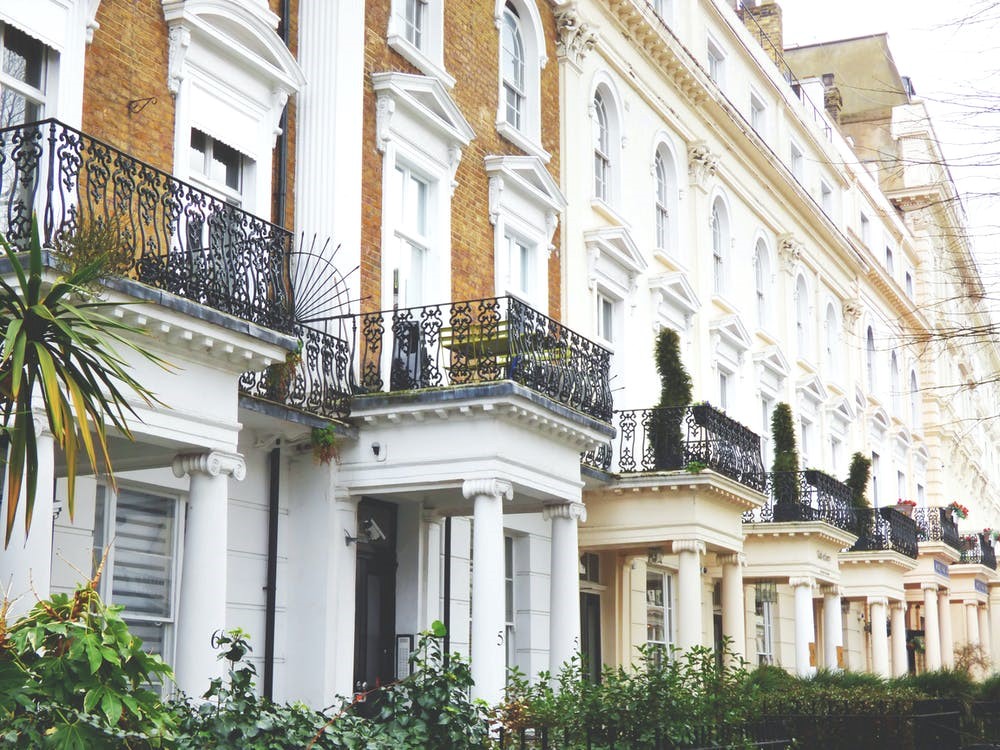Homes with high energy efficiency hold their value as average house prices fall

The average house price in the UK fell by 0.3% between October and November – the first monthly fall in more than a year. This brought the annual growth rate to 10.3% in November, down from 12.4% in the previous month as the average UK house price stands at £295,000. Despite the fall, homes with high energy efficiency seem to be holding their value as the latest survey from the Royal Institution of Chartered Surveyors showed that 61% of the agents and surveyors polled reported that homes with high energy efficiency aren’t suffering from the same price falls. Adding to that, sellers are looking to take advantage of their home’s energy efficiency as four-in-ten institution members reported that sellers of eco-friendly houses were trying to attach a price premium.
This comes as a landmark study from Cornerstone Tax has found that making homes more energy efficient is becoming a key focus for homeowners, with 36% thinking that making their home more energy efficient is a priority for them throughout this year. It is evident that there is significant demand as around 40% of estate agents said they were seeing greater interest from buyers in homes that are more energy efficient. However, many homeowners are finding the price of making their home energy efficient a major obstacle, resulting in a staggering 45% of homeowners finding it too expensive to make these changes without government support.
Homeowners are searching for solutions to ease the increased cost of energy in their home, with external factors considerably affecting the price of energy, many experts believe that turning to eco-friendly solutions could be the answer. In the UK, homes are responsible for a fifth of the total of the UK’s carbon dioxide emissions, prompting the government to pledge that by 2035 every residential property should have an EPC rating of C or above as part of its long-term plan to tackle climate change. By making green renovations to your home, such as: loft insulation, solid wall insulation, ground source heat pumps and double glazing homeowners will make an estimated £890 savings every year, however, the cost which they encounter when installing these features is a substantial obstacle for homeowners with costs in the thousands.
According to the English Housing Survey, the total cost of upgrading a D-rated home is estimated to be nearly £6,500. The easy option for upgrading your home to become more energy efficient would be to buy a new-build property, with government figures showing that 84% of newly completed properties being given an A or B rating. It is estimated however that 30% of homes in England and Wales are still rated E, F or G. Cornerstone Tax’s study found that 45% of homeowners would prefer to refurbish or extend their current home rather than move into a new build due to the environmental damage of new buildings as opposed to just 12% who are planning to move house to live a greener life. This indicates a clear want from homeowners to make their homes more energy efficient to combat the rising energy costs, but more help is needed from the government if they are to reach their sustainability goal by 2035.
David Hannah, principal consultant at Cornerstone Tax discusses homeowners making their home more energy efficient:
“It seems that homeowners all over the country are seriously considering turning to green renovations not only to combat the rising energy costs but also to add significant value to their home. By making your home energy efficient, homeowners will also save money in the long run and contribute to the UK’s sustainability targets.
The initial costs of making green renovations to your home is still a substantial obstacle for homeowners to overcome. Perhaps in the future the government can provide much needed support to homeowners who are looking to refurbish their home to make it more eco-friendly. There’s evidently huge demand for greener homes as seen in the latest survey by the Royal Institution of Chartered Surveyors and the benefits of making your home more energy efficient can be substantial – the main upside being that your property will hold value despite falling prices elsewhere.
“If you want the benefits of an eco-friendly home, without the extra expense or the hassle then the solution would be to buy a new-build property. However, homeowners have grown connections to their current properties and understandably may want to stay there – therefore choosing to refurbish their current home rather than move to a new property.”




